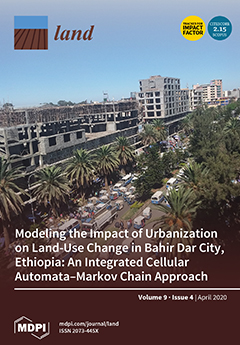Resources
Displaying 1506 - 1510 of 2258Environmental Transformations in the Area of the Kuźnica Warężyńska Sand Mine, Southern Poland
On the basis of the analysis and interpretation of maps, published literature, and environmental reconnaissance, this article discusses environmental transformations in the area of the Kuźnica Warężyńska sand mine in southern Poland over the years 1944–2015. A comprehensive ecological analysis was carried out concerning spatial development, mining activity, hydrogeological and hydrological conditions as well as the biotic environment.
A Comprehensive Process for Stakeholder Identification and Engagement in Addressing Wicked Water Resources Problems
Various sectors of stakeholders (urban, agricultural, policymakers, etc.) are frequently engaged in participatory research projects aimed at improving water resources’ sustainability. However, a process for comprehensive and integrative identification, classification, and engagement of all types of water stakeholders for a region or river basin, especially in a transboundary context, is missing for water resources research projects.
Inclusive Landscape Governance for Sustainable Development: Assessment Methodology and Lessons for Civil Society Organizations
Landscape governance refers to the combination of rules and decision-making processes of civic, private, and public actors with stakes in the landscape, that together shape the future of that landscape. As part of the Green Livelihoods Alliance, a program that supports civil society organizations (CSOs) to strengthen the governance of tropical forested landscapes, we developed and implemented a method that facilitates stakeholders to assess the status of governance in their own landscape and to identify options for improvement.
Vegetation Structure, Species Composition, and Carbon Sink Potential of Urban Green Spaces in Nagpur City, India
Nagpur is rapidly urbanizing, and in the process witnessing decline in its green status which is one of the identities of the city. The study aims to understand the current species diversity, composition and structure in different classes of greens prevalent in the city. As urban green spaces (UGS) are also reservoirs of carbon stock, the study estimates their biomass. Through rigorous field work, data were collected from 246 sample plots across various UGS classes as pre-stratification. Then the biomass was estimated using non-destructive method with species-specific equation.
Regional Economic Sustainability: Universities’ Role in Their Territories
The sustainability of territories (e.g., regions and countries) is currently an issue that should be considered when implementing organizational strategies. The globalization, industrialization, and population growth trends observed in recent decades have forced experts to adopt a sustainable approach capable of guaranteeing that a population’s present needs can be met without compromising future generations’ well-being. Among the essential pillars of successful sustainability strategies, social development stands out as quite important, so the present study focused on it.


